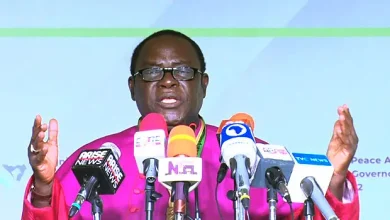Seeds of Progress: Edo State Flourishes Under Governor Obaseki’s Agri-Empowerment

In a bid to transform Edo State’s agricultural landscape, Governor Godwin Obaseki has spearheaded a comprehensive and innovative set of agriculture programs aimed at boosting food security, increasing farmers’ income, and fostering rural development.
These initiatives are not only changing the way agriculture is perceived in the state but are also contributing to the overall economic growth and sustainable development of the region.
Diversification for Resilience:
Recognizing the need to diversify the state’s economy beyond oil, Governor Obaseki has embraced agriculture as a key driver of growth. Through a multifaceted approach, the administration has implemented a range of programs to catalyze the agriculture sector. The focus is on creating an enabling environment that empowers local farmers, enhances value chains, and leverages modern technologies for increased productivity.
Edo Food and Agriculture Cluster (EDOFAC):
One of the flagship initiatives is the establishment of the Edo Food and Agriculture Cluster (EDOFAC). This strategic initiative aims to develop integrated agro-industrial hubs across the state, fostering collaboration between farmers, processors, aggregators, and other stakeholders. By providing access to shared infrastructure, technology, and expertise, EDOFAC boosts productivity, improves quality control, and reduces post-harvest losses.
Strengthening Farmers’ Capacities:
Governor Obaseki understands the importance of equipping farmers with knowledge and skills to maximize their yields. His administration has invested heavily in capacity-building programs, offering training in modern farming techniques, crop management, and sustainable practices. The objective is not only to enhance productivity but also to encourage young people to view agriculture as a viable career option.
Agripreneurship Development Program:
To foster a new generation of agripreneurs, Governor Obaseki launched the Agripreneurship Development Program. This initiative provides aspiring young farmers with mentorship, access to finance, and opportunities to establish their agribusinesses. By facilitating access to credit and linking them to markets, the program encourages youth participation in agriculture and contributes to reducing unemployment rates.
Revitalizing Staple Crop Production:
A core component of the state’s agriculture agenda is boosting the production of staple crops, such as rice, maize, and cassava. The government’s support extends to providing high-quality seeds, fertilizers, and mechanized equipment to farmers. The result has been increased domestic production, reduced food imports, and improved food security for the state’s residents.
Partnerships for Success:
Governor Obaseki recognizes that the success of these agriculture programs relies on collaboration between the public and private sectors. The government has forged partnerships with local and international organizations, agricultural research institutions, and private companies. These collaborations facilitate knowledge transfer, technology adoption, and investments in agribusiness infrastructure.
Value Addition and Export Promotion:
Beyond domestic consumption, the state is leveraging its agricultural potential to promote exports. By encouraging value addition and agro-processing, Edo State is enhancing the competitiveness of its agricultural products in international markets. The administration is committed to quality control measures, ensuring that products meet global standards and gaining access to premium markets.
Inclusivity and Women Empowerment:
The Obaseki administration recognizes the pivotal role that women play in agriculture. To ensure their participation and empowerment, gender-sensitive initiatives have been implemented, providing women with equal access to resources, training, and opportunities. This approach not only contributes to gender equality but also enhances overall agricultural productivity.
A Model for Others:
Governor Godwin Obaseki’s holistic approach to agriculture has positioned Edo State as a model for other regions aiming to harness the potential of the sector. By embracing technology, investing in human capital, and creating an enabling environment, the state is not only boosting food security and economic growth but is also demonstrating the transformative power of sustainable agriculture.
Looking Ahead:
As Governor Obaseki’s agriculture programs continue to yield positive results, the future looks promising for Edo State’s agri-sector. With a blend of innovation, collaboration, and dedication, the administration is sowing the seeds of prosperity, nourishing the state’s economy, and creating a vibrant agri-ecosystem that benefits both farmers and consumers alike.




